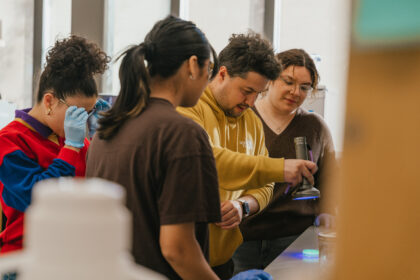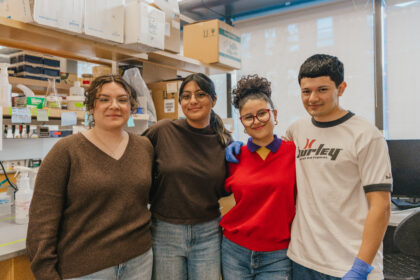Shared science and shared experience
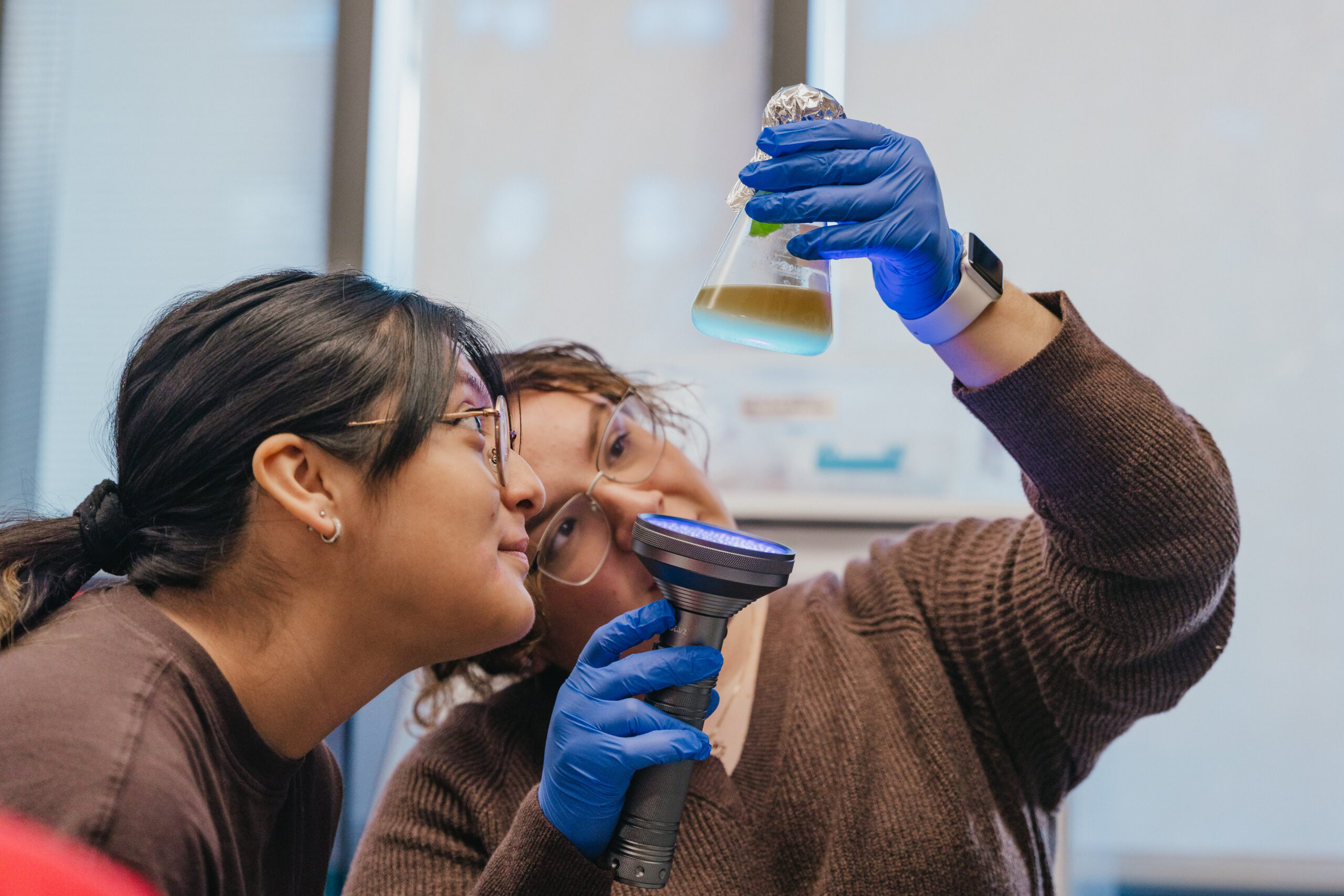
“I feel like it’s important in a field that’s so widely dominated by white people to have a space where you can study, where you can reach out, where you can ask questions without feeling like you’re not enough.”
Across America, a gap exists between the number of Latine students who receive degrees and their white peers. Only 52% of Latine (also known as Latinx) students pursuing a four-year degree go on to graduate, compared to 65% of their non-Latine white peers, according to NBC News. Clark’s Latines in STEM club is working to mitigate this trend by strengthening community bonds among Latine students in science, math, technology, and game design.
When biology major Carlos Pérez-Gazca ’25 was a first-year student, he was the only active member of Latines in STEM. Now, he’s the club president and hopes to motivate other Clarkies to start Latine clubs in their disciplines.
“If other Latinx students hear about us,” he says, “they may feel inspired to create their own club, their own ‘Latines in’ something else.”
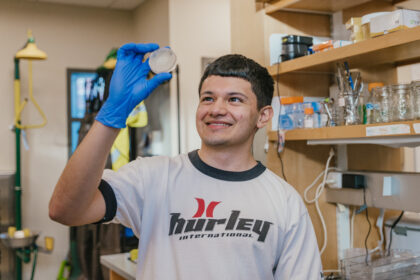
Pérez-Gazca worked with Latines in STEM Vice President Darlene Polanco Molina ’26, a biology major in the Prehealth Advising Program, biology major Kacey Alcántara Reyes ’25, and chemistry major Nicole Lalangui Ponce ’26 to bring new energy to the club after noticing that STEM-majoring Latine students desired a place to connect.
Polanco Molina says that the necessity of the club comes from its status as a safe space.
“I feel like it’s important in a field that’s so widely dominated by white people to have a space where you can study, where you can reach out, where you can ask questions without feeling like you’re not enough,” she says.
Polanco Molina moved to the United States fewer than ten years ago. She didn’t speak English and believes that an affinity club would’ve greatly helped her when she arrived. Latines in STEM feels like “a steppingstone toward my future path in medicine as a Latina,” and she hopes that other Latine students will be able to take advantage of that as well.
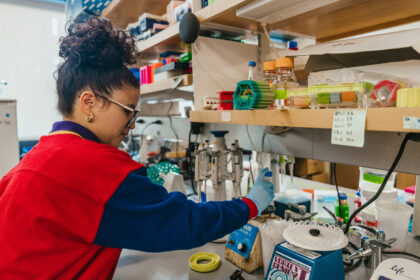
“It’s hard being a Latina student in a STEM field, feeling underrepresented, feeling like there aren’t opportunities for you, or like you have to work harder for certain opportunities,” Alcántara Reyes says. “There’s a lot of value in being in a space with people who share your experiences.”
Current club members mainly major in biology and chemistry, but the group anticipates engaging with peers across STEM disciplines such as science, math, and computer science. Pérez-Gazca plans to call on the colleagues of biology Professor Javier Tabima, the club’s sponsor, to be guest speakers. The group also wants to coordinate activities to help STEM students diversify their interests.
“Our service to the community is to make people understand that they can do this,” says Tabima. “We have the privilege of doing science, which is something that not a lot of people can do.”
Pérez-Gazca and Alcántara Reyes say running the club has taught them that they can’t lose motivation — and has reinforced that STEM students are busy, they add with a laugh. Knowing the importance of the club to the Latine community at Clark is a huge motivating factor for them.
“We’re Latinos in higher education pursuing a degree and trying to increase the percentage who graduate,” says Alcántara Reyes. “I think that’s really important.”
Follow their Instagram for updates on meetings and gatherings.
